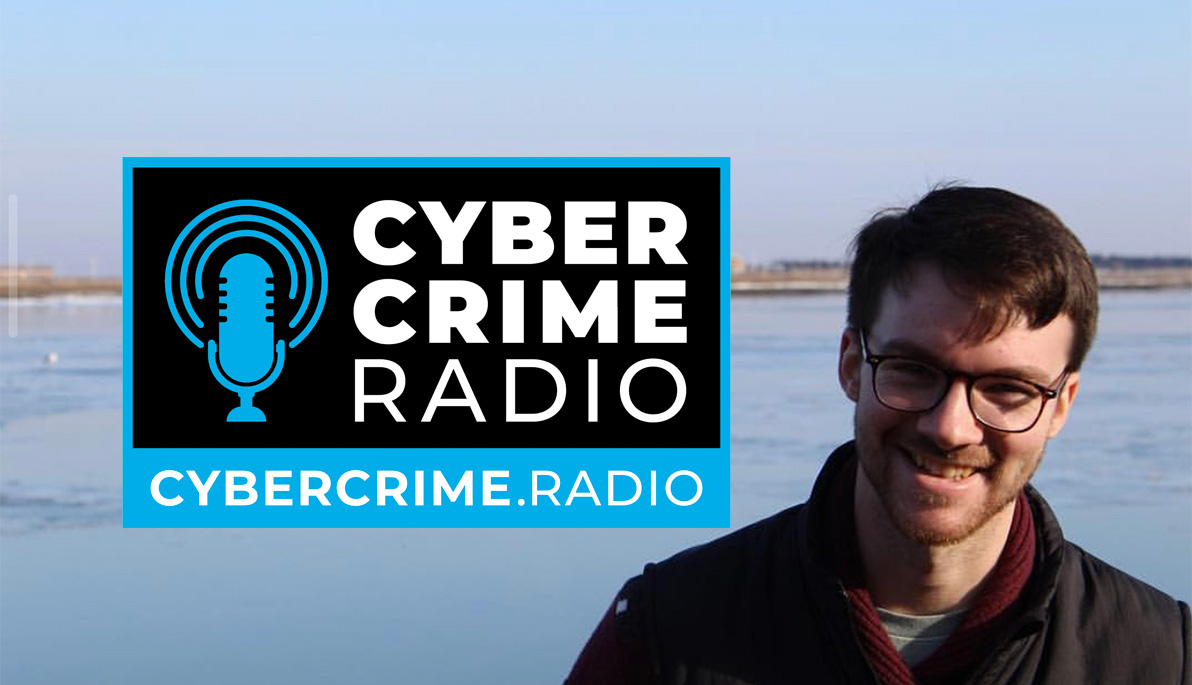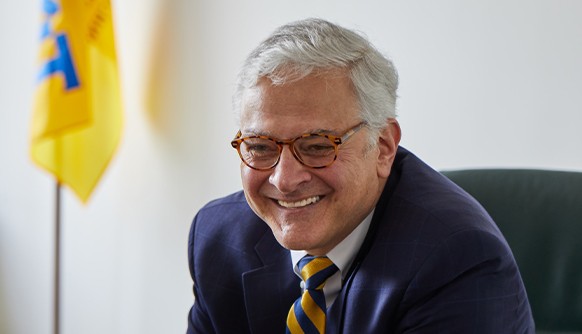News
Cybersecurity Grad Student Featured in Cybercrime Radio Podcast
October 23, 2020
Zachary Singleton (B.S. ’20), a graduate student studying cybersecurity in NYIT College of Engineering and Computing Sciences, was recently awarded the Department of Defense (DoD) Cyber Scholarship. The DoD gives the scholarship as a grant to designated Center of Academic Excellence in Cyber Defense Education schools.
In light of this significant accomplishment, Singleton was asked to share his story with Cybercrime Radio, the podcast channel of Cybersecurity Ventures, the leading researcher for the global cyber economy and a New York Tech partner, based on the common goals of helping to develop the Long Island region into a cyber-defense hub and driving awareness and education about career opportunities in STEM.
Following are excerpts of Zach Singleton’s interview on Cybercrime Radio; listen to the full podcast.
What made you want to pursue studies in the cybersecurity field?
I found a passion for computers in high school. I enjoyed tearing them apart and building them. Once I entered my senior year, I was fortunate to get enrolled in CISCO Networking Academy’s IT fundamental’s course, developed to turn a student into a functioning level 1 and 2 IT technician. Of course, it was packed with everything related to computer hardware, but it also encompassed one or two computer networking modules. Once we got to those modules, I was more or less hooked with networking. I found it fascinating how information could be sent and received. I began to research and watch small tutorials on how to create and send my own packets of information, which led to my first small chat program. That small program was the stepping stone for me into cybersecurity.
What it does mean to study at New York Tech and its College of Engineering and Computing Sciences, which is designated as a Center of Academic Excellence in Cyber Defense Education?
I can say that the information I have learned here and the fashion in which I have learned it, I probably would have not obtained anywhere else. This program got this designation, its backing from the NSA (National Security Agency) and DHS (Department of Homeland Security), because it is one of the best. That alone makes me want to perform harder, knowing that in the future the techniques I have learned and the knowledge that was passed onto me will be put to use to provide better national security.
Can you tell us about the Entrepreneurship and Technology Innovation Center, and the work you do there?
The Entrepreneurship and Technology Innovation Center, known as the ETIC, is run by Michael Nizich, Ph.D., and is the university’s premier hub/space for fostering discovery, cultivating new businesses and products, and trailblazing fresh ideas in technology, engineering, and applied science. Pretty much anything that has to do with top tech and top tech problems, the ETIC has a hand in making a difference in some way. I am focusing on expanding the cybersecurity research program and infrastructure within ETIC, but also in developing remote programs for the ongoing ETIC research interests and projects for students. It is a very fun hub, and I am never short of something exciting to do.
You’ve also had a series of internships at Brookhaven National Laboratory?
Brookhaven National Laboratory has a very special place in my heart, and always will. My first internships were based in Non-Proliferation and National Security. Being an intern in this department set in stone my passion for the field. My mentor took me under his wing and cultivated my knowledge—but more importantly my passion—to push me to my very best. I worked on a small project that dealt with the progression of software-defined networks (SDNs) as a scalable alternative to growing laboratory cybersecurity concerns. Most of my time was spent learning and then applying the methodology of SDNs. A truly fascinating topic, especially for those interested in a scalable network security solution.
In my last internship, I worked alongside a brilliant atmospheric scientist to help process her aerosol data. The work was all data analytics and processing. The very material the operational security/researcher guys I interned for work to protect. To see the other side of the coin and understand it, I believe, has made me a better cybersecurity student and future professional. In order for me to protect our scientist’s information, in my opinion, one should understand how they conduct their work.
We know there’s lack of skilled talent needed to build the pipeline in cyber defense. How can the field generate more interest to get bright young people like yourself and your classmates to join it? I’ve been a firm believer of getting more computational science into K-12. I got lucky and found my passion early on for cyber. But I believe some sort of introduction to programming class should be offered earlier than senior year. Maybe around middle school? Since technology is everywhere, I believe teaching children about software and programming is the step in the right direction. Of course, I believe once you have some type of foundation like this, you will have an influx of individuals who think outside the box and enjoy pushing the boundary. The perfect candidates who would find cyber the best fit for them. Break things, and then break even more things. You find out a lot about why it broke rather than why it didn’t break.
This transcript has been edited and condensed.
Listen to the full podcast.





